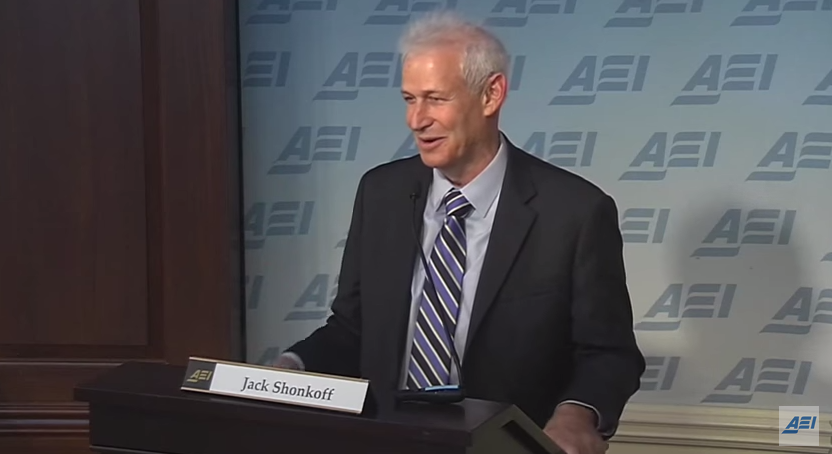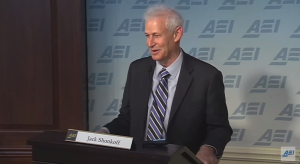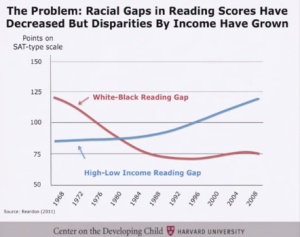More Pre-K Education and Neuroscience

Pre-K education has been a large part of the Obama administration’s educational efforts, but does it have a lasting effect? Jack Shonkoff, a Harvard University professor in public health, made the case that early education does matter, but that the parents may have more to do with it than teachers and bureaucrats. He spoke on June 4, 2015 at the American Enterprise Institute event entitled, “The science of early learning: A foundation for expanding opportunity.”
Shonkoff outlined four pillars of social and economic mobility in early childhood: educational achievement, economic productivity, responsible citizenship and lifelong health. He said, “The problem is, the academic achievement gap…has kind of come down a fair amount based by race although we have a ways to go.” He added, “Most of this gap is present at the first day of kindergarten, very little of that gap is reduced” and “we have the capacity to move the needle.”
What has affected early childhood development the most? Shonkoff suggested the “change in family structures” and the new “nature of work” that is “dramatically different” than in the past. Today, there is a shift to single-parent, high-school educated households, which was not seen decades ago. These single-parent high-school graduates “cannot get a job that can support one family, there’s a lot of temporary work, there’s a lot of part-time work, there’s a lot of work with unpredictable schedules.”
Now, this relates to child development because “the brain is shaped by experience,” and “increasing amounts of adversity” does affect the development of the brain. Early childhood experiences, the cooing when there are newborns or infants or “interactive experience” of going to grocery stores “literally shapes the brain circuits for learning and early literacy.” Shonkoff said, “This is all priming the brain” and “every interaction, every mundane setting is an opportunity to give names to things.”






